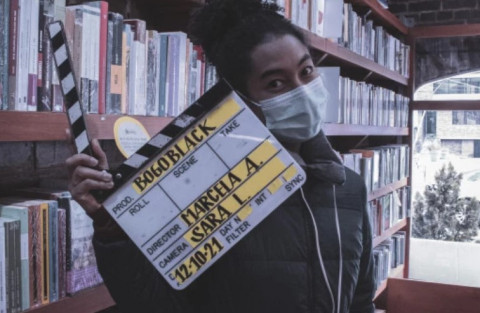
GCED Basic Search Form
Quick Search
현재 위치
뉴스

Against the background of the ongoing pandemic, which disproportionally impacted the livelihoods of artists and cultural professionals globally, the Fifteenth Session of the UNESCO Intergovernmental Committee for the Protection and Promotion of the Diversity of Cultural Expressions held this week approved over US$730,000 in funding for cultural projects.
The funding, from the International Fund for Cultural Diversity (IFCD) will benefit 9 projects from Bolivia, Chile, Colombia, Guinea, Indonesia, Nigeria, Palestine, Seychelles and Timor-Leste, from a total of 615 project proposals submitted. This brings total support from the IFCD to more than US$ 9.4 million, resulting in funding for 129 projects in 65 Member States since 2010.
The Committee’s decision is in line with UNESCO’s policy to support the creative and cultural sector, which has suffered from the pandemic, as shown in the recent report, Re|Shaping Policies for Creativity.
"This period of profound upheaval is presenting all of us with a choice. Either we try to merely patch up the holes, which will undoubtedly lead us to face the same challenges in the near future, or we seize the opportunity to transform the cultural ecosystem in an integrated manner to make it more resilient, more inclusive, and more sustainable."
Ernesto Ottone R.
Assistant Director-General of UNESCO for Culture
COVID-19 highlighted challenges faced by artists and cultural workers in accessing decent work, especially in countries with limited or no social infrastructure. UNESCO assistance targets support to reach young people, women and the most vulnerable groups in developing countries in order to provide them with a more stable work environment.
The projects benefiting from the IFCD funding are:
- Establishing a community-driven alliance for sustainable cultural development planning in Lautem, Timor-Leste, led by the NGO Many Hands International-MHI.
- Fostering cultural diversity through youth empowerment in Chile, led by Arte Joven (Corporación Cultural Balmaceda Doce Quince)
- Reinvigorating and re-establishing culture at the heart of Seychelles’ economic and social development, led by Seychelles National Institute for Culture, Heritage and the Arts.
- WE ARE DIVERSE: Empowering female audiovisual professionals from vulnerable groups in seven countries of Latin America, led by Ibero-American Federation of Motion Picture, Colombia
- Promoting and monitoring artistic freedom in Indonesia led by the Perhimpunan Koalisi Seni Indonesia – Association of Indonesian Art Coalition, Indonesia
- Improving market access for artists with disabilities led by Potter’s Gallery Initiative, Nigeria
- Promoting cultural and creative industries in the city of La Paz, Bolivia led by the Cultural Vision Foundation, Bolivia
- Ramallah City of Music – a strategy for sustainable city development through music led by Ramallah Municipality, Palestine
- Reinforcing entrepreneurship in Guinea’s audiovisual, fashion and design sectors led by La MUSE, Guinea
To learn more about the 9 IFCD beneficiary projects for 2022 please click here.
The IFCD empowers the civil society actors and public sectors behind these projects to drive robust and sustainable creative economic growth. Through reinforced fundraising efforts, UNESCO expects to double contributions to the Fund over the next three years so that more eligible projects can be supported. The IFCD is part of the UNESCO Convention on the Protection and Promotion of the Diversity of Cultural Expressions (2005), which has 151 Parties.
